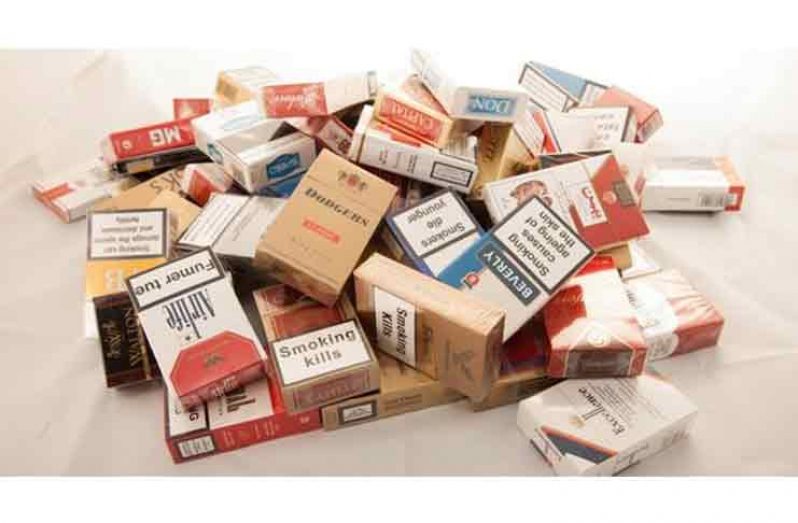…GRA warns importers, retailers to comply with new regulation
THE Guyana Revenue Authority (GRA) has notified importers, retailers and resellers of tobacco that the Excise Tax rate of $2,500 will be applied per thousand (1,000) sticks.
This took effect from January 1, 2019 in accordance with the Excise Tax (Amendment) Regulations 2018. GRA warned that it is the responsibility of the importer, retailer or reseller to provide the staffers with stamps to affix under the supervision of the customs officers.
In addition, the tax agency is reminding importers, businesses, and persons that purchasing any tobacco product for resale without the affixed excise stamps is contrary to law. The affixing of excise stamps on units of alcohol and tobacco products is an anti-smuggling measure, and is being carried out in accordance with the provisions of the Customs Act, Chapter 82:01.
The high-security bar-coded stamps are designed to reduce the leakage of an estimated $2B in taxes that Guyana loses annually from smuggled hard liquor and cigarettes. According to GRA, failure to pay the relevant duties and taxes and neglecting to stamp the products, will incur penalties ranging from 300 per cent of the tax-value to five years’ incarceration.
Meanwhile, one study revealed that more than US$50M is lost in revenue for the governments in the Caribbean as a result of tobacco smuggling. According to the World Customs Organisation, estimates indicate that over 480 billion cigarettes a year are sold illegally in the global tobacco market – whether smuggled, counterfeited or sold in other ways without taxes being paid.
Cigarettes are among the most commonly traded products on the black market due to high profit margins, relative ease of production, movement and low detection rates and penalties. The World Customs Organisation Illicit Trade Report noted that the illegal trade in tobacco products cheats governments out of around US$40 billion each year in taxes.
“Yet some governments are unaware of how bad the problem is and do not acknowledge its link to tax levels. Legitimate retailers – often small or family businesses – are also damaged as smugglers and criminals steal their trade, while rules for retailers to prevent sales to children are undermined by illegal sales away from the eyes of the authorities,” the report noted.
Another issue facing trade is that counterfeits can be almost impossible to tell apart from the genuine product. Another problem is ‘look-alike’ cigarettes, where the criminals mimic an original design with some minor changes.
“The rewards can be high. Just one shipping container full of trafficked cigarettes could earn a criminal gang more than US$1M,” the report underscored.
Governments and international organisations such as the World Customs Organisation, the World Trade Organisation, World Health Organisation and the European Union, are seeking to eliminate all forms of illicit tobacco trade.
“We see it as vitally important that governments establish workable tax regimes and economic policies that do not create conditions that encourage illicit trade, with strong border controls and effective laws to fight the black market,” the World Customs Organisation underscored.



.jpg)










